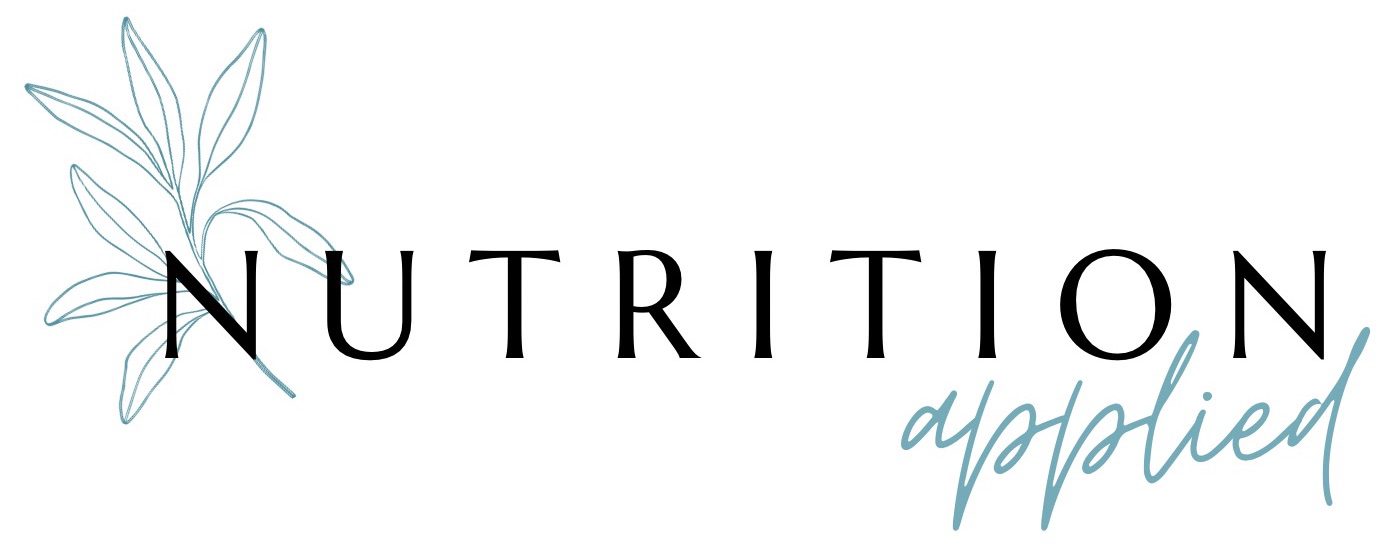
5 Steps to manage your IBS
So you’ve been diagnosed with IBS, or suspect you have IBS. This unpredictable condition is undoubtedly affecting your life and general wellbeing. It is controversial to say IBS can be cured but, by following the 5 steps below, you will be able to better manage your symptoms and reduce them significantly. At Nutrition Applied we expertly guide our IBS clients through this gut healing journey and see substantial improvements. It can take a few months to restore your gut health but with consistency and perseverance you’ll be able to live a full life with restored confidence.
Step 1 – Test for IBS triggers
IBS can be triggered by many causes, and each requires a different treatment. Identifying the one or more triggers specific to you is essential in order to reduce or eliminate your symptoms. Possible triggers include chronic stress, antibiotic overuse, leaky gut syndrome, small intestine bacterial overgrowth (SIBO), yeast overgrowth, parasites, hormone imbalance, low vagal tone, thyroid dysfunction, food allergens, food poisoning and excessive consumption of alcohol or caffeine.
Tests which we use in clinic to determine your triggers include stool, breath, urine or blood. Some of these can be done by your GP, such as thyroid function or for parasites, so it is worth asking.
Step 2 – Increase fibre in your diet
This is one of the most important areas that we work on with our clients as most are consuming less than the recommended daily fibre intake of 30g/day. Fibre is important in maintaining gut motility (how food moves through your gut) and stool consistency. When we improve these factors, we see an improvement in other IBS symptoms such as bloating, urgency and pain. Fibre is found in all plant foods including fruit, vegetables, nuts, seeds and legumes. Remember to increase fluid intake to 2-3 litres when you start eating more fibre so as to keep the stool soft and prevent constipation.
Step 3 – Temporarily eliminate foods
In treatment, we will try to eliminate as few foods as possible so as to keep your diet as varied and enjoyable as possible. Prior to removing any food groups, we look at reducing alcohol, caffeine and fatty foods which are all known to cause problems with many IBS sufferers.
Alcohol impacts the quantity and diversity of our gut microbes and damages the mucous lining. Drinking it in excess (more than 4 units/day) is associated with IBS symptoms including diarrhoea, pain and nausea.
Caffeine, which can be found in coffee, tea, energy drinks and chocolate, is known to increase motility which can lead to very loose stools and a sense of urgency. A reduction in these foods and beverages can reduce symptoms.
Fatty foods can increase IBS symptoms such as pain and bloating. By eating a high fat diet which may include deep fried foods, ice cream and pizza, you may be displacing healthier high fibre foods. Also, fat can slow down gut motility exacerbating constipation. Healthy foods which can also be high in fat include avocados, nuts, seeds, coconut oil, cheese and red meat, and you may need to carefully monitor your consumption of these.
If no improvement is seen from reducing alcohol, caffeine and fatty foods, you can temporarily remove dairy and gluten as these are protein allergens that many IBS sufferers are sensitive or intolerant to.
The next step would be to adopt a low-FODMAP diet, a well researched diet effective for IBS. FODMAP, which stands for ‘fermentable oligosaccharides, disaccharides, monosaccharides, and polyols’ are carbohydrates that ferment in your gut and can cause discomfort in IBS sufferers.
The low-FODMAP diet eliminates foods that are healthy and beneficial to your gut microbes and should therefore not be a long-term diet. It should be done under the guidance of an experienced practitioner to ensure there are no resulting nutritional deficiencies. Once your symptoms have subsided, you slowly reintroduce food groups to determine which you can tolerate and how much of those foods you can tolerate.
Step 4 – Gut-healing supplements
At Applied Nutrition we always adopt a food-first approach when reviewing your dietary needs. Nonetheless, certain supplements have been shown to provide relief to IBS sufferers and as they are natural, they have few if any side effects. When starting any supplement regime, it is always best to speak to your health practitioner.
- Probiotics – these are live bacterial which are beneficial to your gut and microbiome. We know that an abundant and diverse microbiome improves gut function and overall health. Prior to starting with probiotics, SIBO needs to be ruled out as it can be exacerbated with probiotics.
- Fiber supplements – these supplements reduce constipation, and psyllium has been shown to improve IBS symptoms. Ensure you drink at least 1.5 litres of water while taking them.
- Peppermint oil – this is an antispasmodic and may therefore reduce the cramping and pain often seen with IBS.
- Magnesium citrate – this can help with constipation in IBS-C sufferers.
- Herbal supplements – slippery elm bark, marshmallow root and deglycyrrhizinated liquorice can all help to improve the health of your gut lining. Consult your healthcare provider prior to taking any herbal substances as they may interact with medications or worsen your condition.
- Digestive enzymes – these may help if you are not digesting your food well, resulting in increased fermentation further down the gut.
Step 5 – Make lifestyle changes
If you have IBS it is worthwhile looking at which of the following lifestyle changes you can make as these can have a profound effect on your condition and greatly reduce your symptoms.
- We are becoming more knowledgeable about the gut-brain axis and how detrimental stress can be to the gut and immune health. Reducing stress daily using meditation, mindfulness, yoga or cognitive behavioural therapy can be beneficial.
- Adequate sleep of 7-9 hours a night allows the gut to heal.
- Regular exercise has been shown to reduce IBS symptoms, possibly due to the anti-inflammatory effects of exercise.
- Spending time outdoors reduces stress and provides an increased sense of wellbeing.
- Skipping meals or lightly grazing all day can result in you having a larger meal later in the day which can increase bloating and indigestion. By having 3 meals and 1-2 snacks can improve your IBS symptoms significantly. This is easier said than done but working with a registered nutritionist can help!
- By eating mindfully i.e. slowing down when eating, chewing each mouthful to baby-food consistency, and savouring the flavours, you can help to improve your digestion.
In conclusion…
If you have been diagnosed with IBS, or suspect you have the condition, these 5 strategies can help you. When it comes to eliminating foods or starting supplements, this is best done under the guidance of a registered nutritionist such as Nutrition Applied. Practicing some or all of these steps consistently can significantly improve your symptoms and your quality of life.
